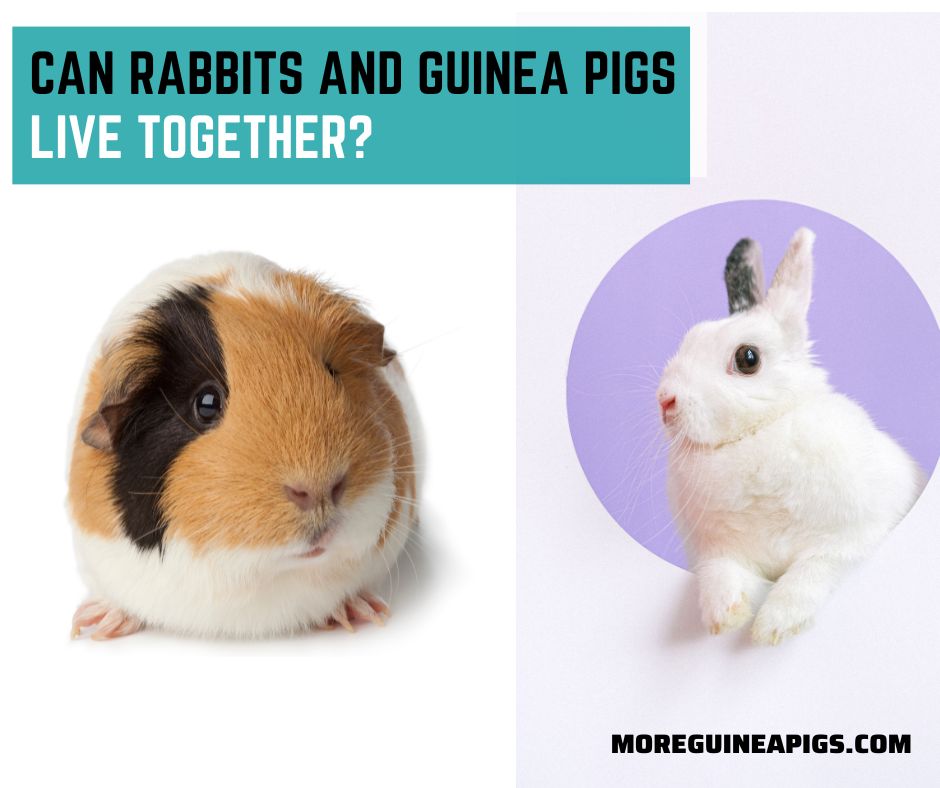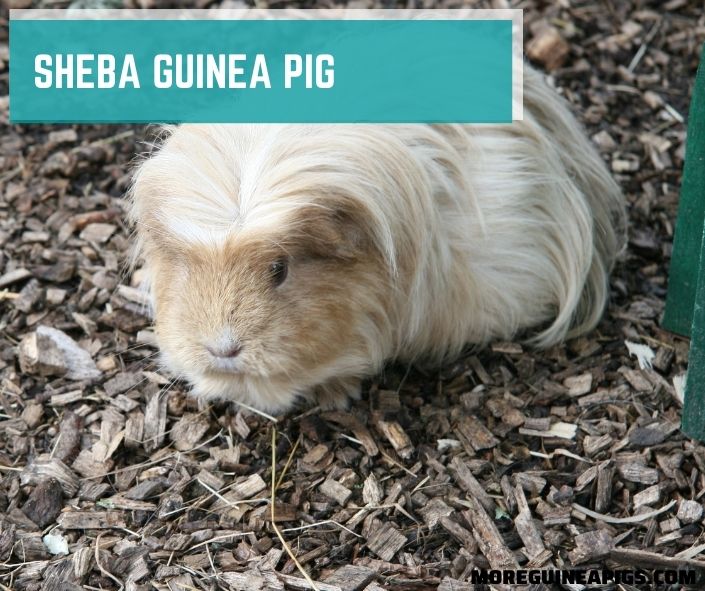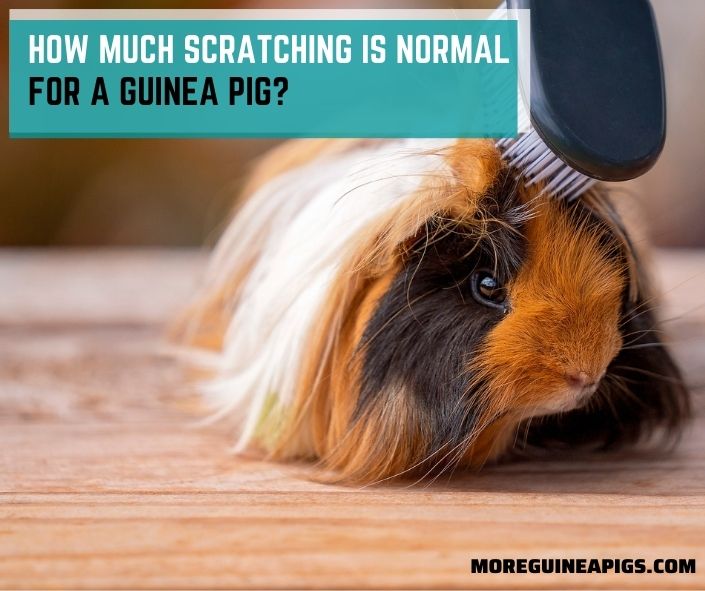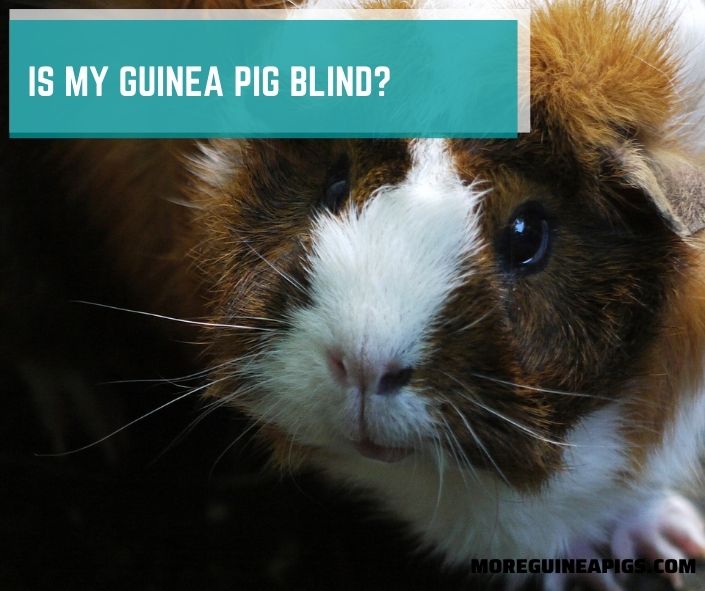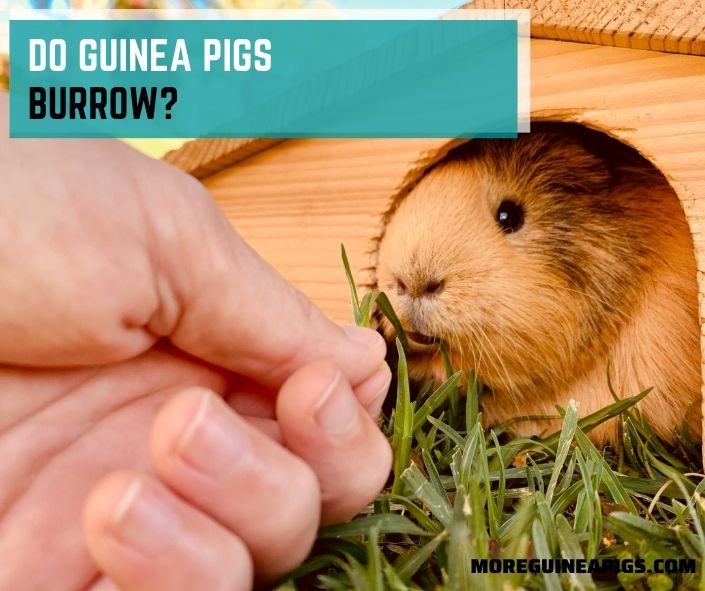Can Rabbits And Guinea Pigs Live Together?
Rabbits and guinea pigs are both little fluffy pets that eat hay and vegetables, and their appearances and behaviors are remarkably similar.
Before reading this, you’re wondering can Rabbits and Guinea Pigs live together in the same enclosure.
In this article, we’ll identify the needs of rabbits and guinea pigs, as well as their appropriateness as companions.
Can Rabbits and Guinea Pigs Live Together?
For a variety of reasons, rabbits and guinea pigs should never be housed together.
The first reason is that it is regarded as dangerous. The second reason is that their communication, dietary, and behavioral requirements differ. Bullying can lead to fights and deaths between both species.
There are also no known benefits or good advantages in keeping rabbits and guinea pigs together.
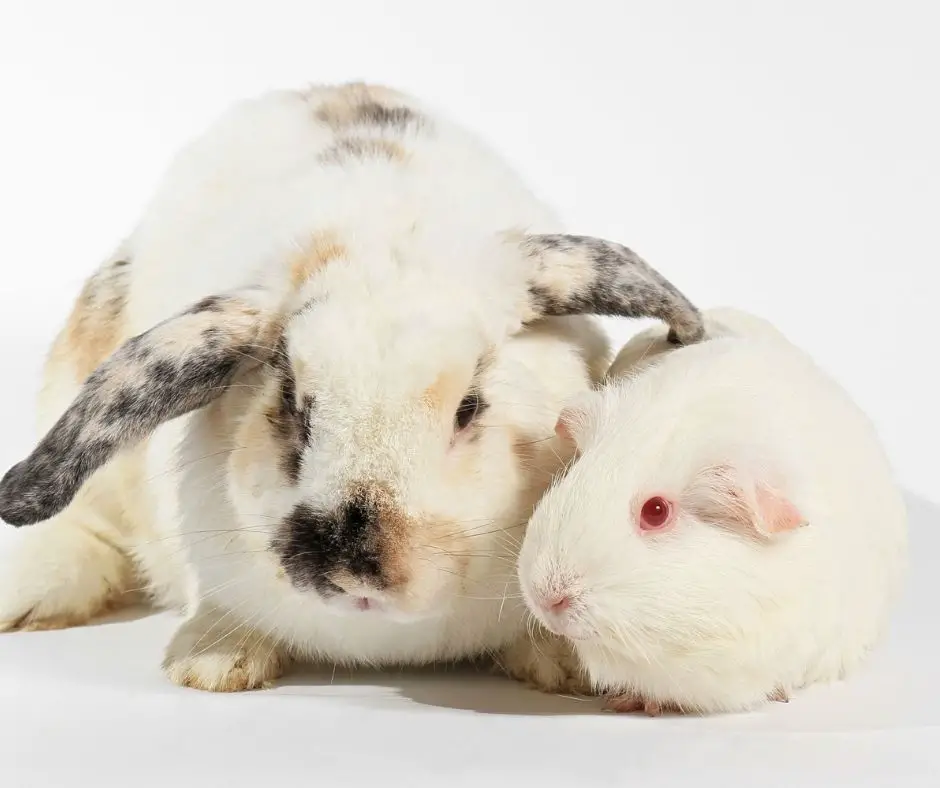
Which Is The Guinea Pig’s Best Companion?
The best company for a guinea pig is another guinea pig who is friendly. Guinea pigs are very high social pets and thrive in environments with other guinea pigs.
Keep a same-sex couple to avoid having unwanted litters. Males and females can be maintained together without any problems. In summary, the only animals that can be guinea pig companions are guinea pigs themselves.
Which Is The Rabbit’s Best Companion?
When it comes to company, a rabbit’s best buddy is another rabbit. Rabbits, like Guinea Pigs, are extremely friendly animals. However, the best companion for a rabbit must be its own kind, which is also a rabbit to spare you from future troubles and problems
5 Reasons Why You Shouldn’t Keep Guinea Pigs and Rabbits Together
Housing cavies and bunnies together may seem like the perfect fit, but this isn’t always the case, and it’s more common for the two animals to get along badly than not.
What’s going on? Guinea pigs and rabbits don’t mix well when it comes to living situations, and we’ve highlighted a few of the reasons why below.
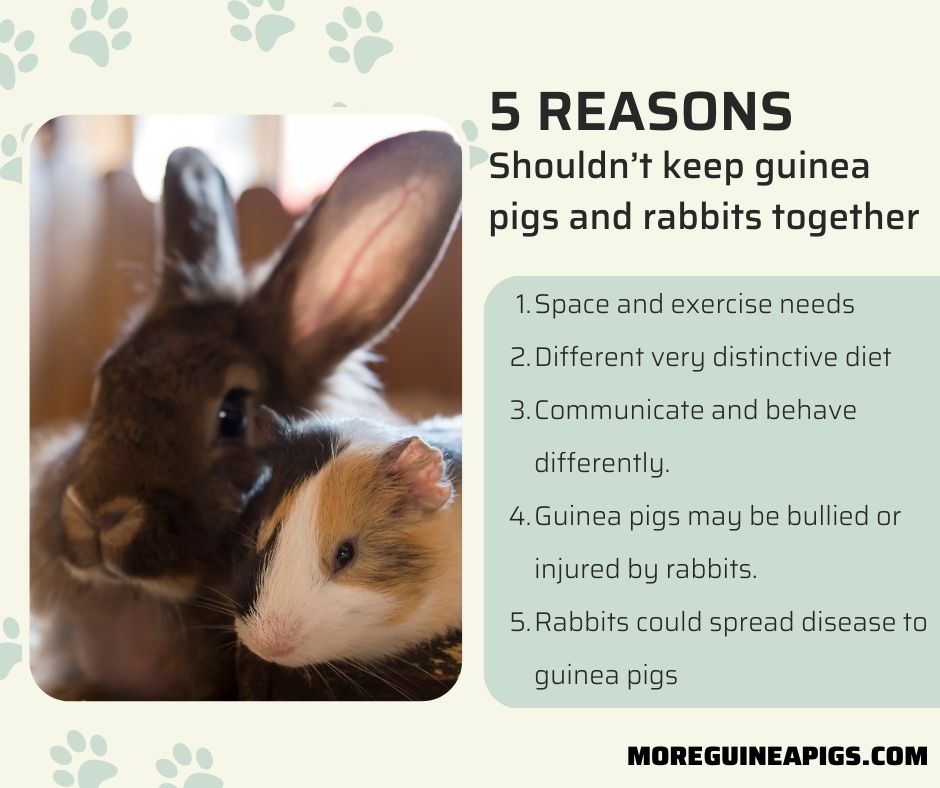
Rabbits and Guinea Pigs Have Space and Exercise Needs Different
Rabbits need a lot more room to hop, jump, run, and binky than guinea pigs. This is not to suggest that guinea pigs don’t require a lot of space; in fact, they do, and they enjoy it.
However, rabbits require significantly more area. More so than a well-behaved domestic rabbit, guinea pigs want to remain hidden for reasons inherent in their species’ biology.
Well-behaved rabbits only go into hiding when threatened or when they do not want to be disturbed. This is another instance of behavioral variation.
Diet Of Rabbits And Guinea Pigs Are Very Different
Guinea pigs require a vitamin C-rich diet and cannot manufacture their own vitamin C. Rabbits are far more efficient at absorbing vitamin C from their food and can develop diseases if exposed to excessive amounts.
This is why the food and pellets for guinea pigs are made differently than those for rabbits.
Rabbits may also bully their smaller counterparts, guinea pigs, resulting in the guinea pig not receiving enough food.
Also read: What Can Guinea Pigs Eat? A-Z Food List
Communicate and Behave Differently
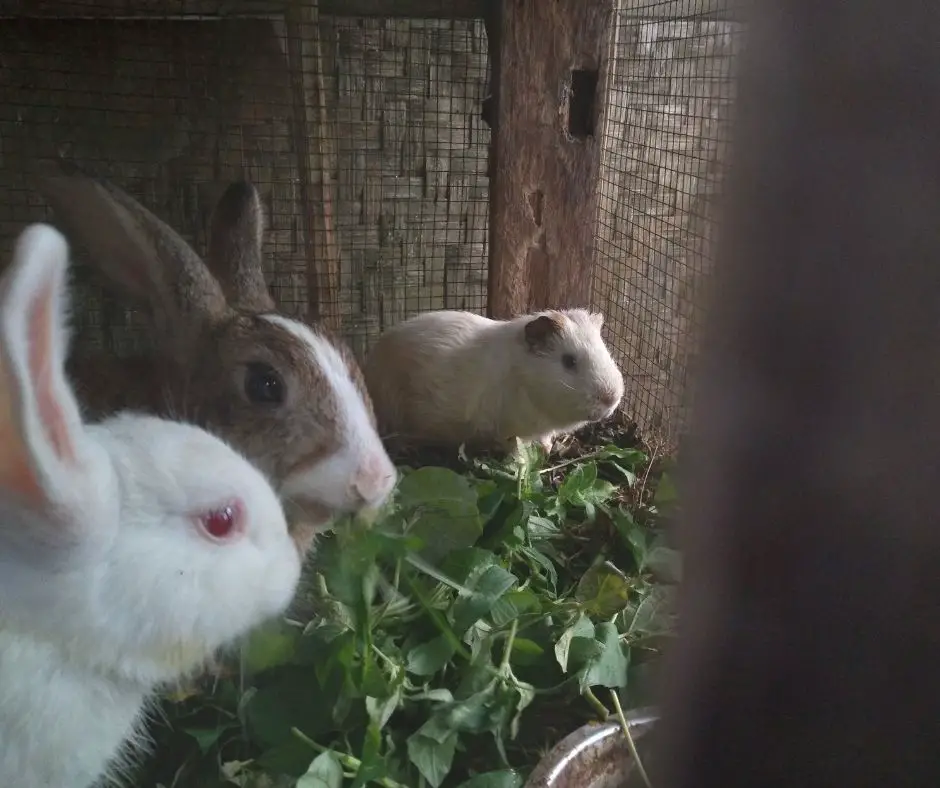
Because they’re not from the same species, they don’t exhibit the same behavioral patterns. As a result, It’s impossible for them to communicate because they don’t speak the same language.
Guinea pigs are smaller than rabbits, hence rabbits are more likely to hurt them unintentionally
Rabbits may be bullies with their sharp claws and can damage and overwhelm guinea pigs, even if they’re just having fun or exercising with their muscular hind legs, as you’ve seen with your fluffy bunny.
Unlike guinea pigs, rabbits enjoy hugging and grooming one another. Guinea pigs, on the other hand, prefer their own space and only to be handled every so often.
Also read: 11 Guinea Pig Behaviors To Help You Understand More About Them
Rabbits May Bully or Injure Guinea Pigs
Bullying is a major issue when these two animals live together. Compared to guinea pigs, rabbits are larger and more powerful, and they are not afraid to ‘throw their weight around.’
This is apparent at all times, not just during mealtimes, especially in one-on-one situations.
Stressed guinea pigs tend to seek out safe-havens, such as their cages. It is essential to have a house or shelter with an entrance large enough for guinea pigs to enter, but not large enough for rabbits.
You should immediately separate your guinea pigs from each other if you witness them being bullied or if you realize they are losing condition or weight.
Rabbits May Transmit Disease To Guinea Pigs
Rabbits can transmit germs (Bordetella bronchiseptica) to guinea pigs, causing pneumonia. Rabbits are clean and litter trained.
Guinea pig poop over 100 times a day, the rabbit must live in a messy and filthy habitat. This can result in sickness which can result in death.
Also read: Why Do Guinea Pigs Poop So Much?
What Happens If They’re Already Living Together?
Ask any exotics vet, and they’ll tell you that a rabbit’s best friend is another rabbit. So do guinea pigs.
If they are currently living together and it is working for them, then separating them may be harmful to their health. Separating them too soon can cause distress. Please take precautions to keep the environment safe.
Feed each pet separately if necessary. Spaying or neutering your rabbit might minimize aggressive behavior and help prevent mounting. You should also offer your guinea pig with safe hiding places that only they can access.
Also read: 7 Top-Rated Guinea Pig Accessories to Buy in 2022!
Conclusion
Because of these differences, it is possible to maintain both sorts of animals in the same home, but they should be kept apart and paired with a companion of the same species.
If you already own a guinea pig, consider purchasing a companion for the animal. One rabbit is more than enough; it’s an urban legend that it’s more cost-effective to add a second one.
